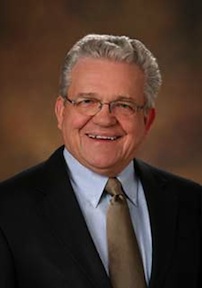By Christopher Burns
Renowned scholar and author M. Thomas Inge, Blackwell Professor of the Humanities at Randolph-Macon College, has announced that his 800 volume William Faulkner collection will be housed at the United States Military Academy at West Point. With this donation, West Point will become a major research hub for scholars interested in Faulkner.
“We have major research collections at universities in Mississippi, Virginia, and Missouri, but not outside of the South,” Inge said in a Randolph-Macon College press release in November 2013.
Inge made the decision to house the collection at West Point after attending at the academy’s fiftieth anniversary celebration of Faulkner’s historic reading at the academy in 1962. “Faulkner’s reading at West Point was a significant cultural event in the life of the academy. The author seldom made such appearances but he was most obliging and cooperative on this occasion,” Inge said.
On this occasion, Faulkner addressed the entire corps of cadets and read excerpts from what proved to be his final novel, The Reivers. He died three months later. The 1964 book Faulkner at West Point commemorated the visit.
Lt. Col. Scott Chancellor, also a Faulkner scholar, echoed Inge’s thoughts on the significance of Faulkner’s visit to the academy. “Faulkner at West Point inaugurated West Point as a liberal institution,” Chancellor said. “West Point continues to bring writers who capture the cadets’ imaginations. Faulkner laid the groundwork for this.” Other writers to speak at West Point include Toni Morrison in 2013 and Tim O’Brien in 2003.
Chancellor is glad Inge chose West Point as the home for his collection. “It’s great to have the collection. We’re honored that Inge chose West Point to house it,” he said. “It’s as impressive as any collection I’ve seen.”
“The extent of the collection is remarkable,” said Col. Michael Stoneham, a Department of English and Philosophy professor.
The Inge collection spans Faulkner scholarship from the 1960s to present. One of the most recent additions to the collection is Faulkner and Whiteness edited by Jay Watson, which was released in 2013.
Inge began the collection with a lone paperback copy of Faulkner’s The Sound and the Fury. The challenge of reading Faulkner “led to a life-long fascination with his life and work,” Inge said.
From the single copy of The Sound and the Fury, the collection expanded to include many Faulkner first editions, translations, Inge’s own letters and articles, tapes and interviews, and scholarly journals.
Stoneham remarked that the collection will be an important tool for cadets. It gives the cadets a chance to engage with first editions and scholarly journals, and become affected by a great literary figure, Stoneham said.
At West Point’s Faulkner conference, “Faulkner at West Point: The Writer in Public,” many of the featured lecturers were international scholars from Germany, Sweden, and South Korea. An Iranian scholar also submitted papers to the conference. Inge hopes the translations “will be useful to future scholars attempting to chart how he has been read in different cultures and contexts.”
“Faulkner was always a global writer,” Chancellor said. “He was writing about global themes since the 1930s.”
The Inge collection will add to West Point’s rich humanities program. “Our mission is to inspire students to a life of service to their country,” Stoneham said. “Our graduates need to be aware of the history and contexts that have shaped the consciousness of [the United States]. And Faulkner does that.”
Currently, the academy is cataloguing the collection, and the academic community is ready to have a look. “I’ve already started to receive queries from scholars,” Chancellor said. After cataloguing is completed, the collection will be segregated with a portion housed in the Department of English and Philosophy’s Faulkner Library, the academy library, and the rest to be placed in storage. The collection will be available to scholars by the end of summer 2014.
Christopher Burns is a senior at the University of Maine majoring in English. The University of Maine is home to the Delta of Maine Chapter of Phi Beta Kappa.




